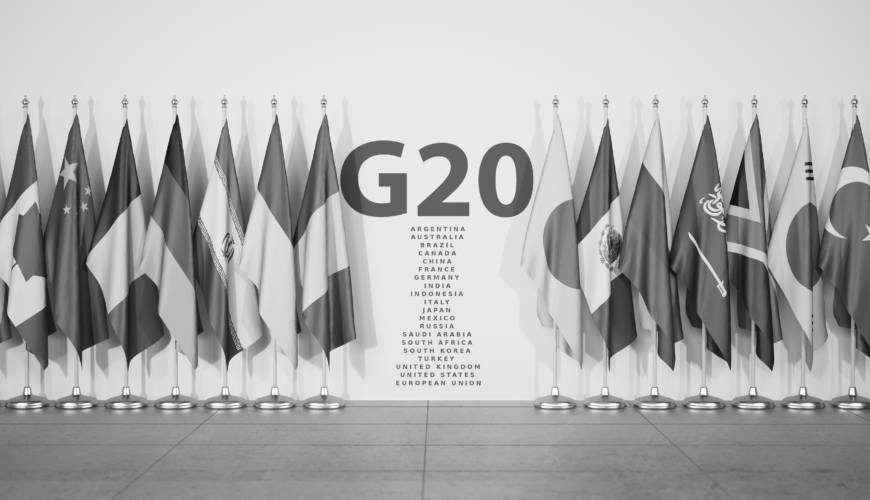While the purpose of the recent G-20 summit was international relations, one of its results is a potential boon to supply chain management. The United States and its partners in Europe, the Middle East and Asia announced that they intend to build a new transit corridor, called the India Middle East Europe Economic Corridor (IMEC), that will link the three regions. The intent is to counter China’s trade influence in region and shore up trade interests for G-20 member countries.
In total, the proposed new transit corridor would cover more than 3,000 miles. It would lay down new freight corridors linking Saudi Arabia, the United Arab Emirates and potentially Israel. To reach India and Europe, the proposal would implement new sea transport lanes.
Funding for the new transit corridor will come from the wealthier trade partners in Europe and the United States. The efforts to build the infrastructure needed will be expeditious as the western partners aim to beat China to the punch. China already began a “belt and road initiative” with goals of financing rail, roads, pipelines, and ports to link the regions of Asia, Europe, Africa, and Latin America. However, the EU countries have largely distanced themselves from the project and will now throw their support behind the new G-20 initiative.
Israel is not currently a partner in the initiative, but member states expressed optimism that it would come on board in the future. Its inclusion would ease supply chain management in the Middle East region, but that eventuality remains uncertain. Saudi Arabia, on the other hand, has already spent a substantial amount of money on its national infrastructure as part of a plan to move its economy away from oil. Supply chain cooperation with the kingdom could be a useful step toward better political relations with the United States, in addition to improved transit routes.
Once IMEC’s railway routes are completed, they will offer a cross-border, ship-to-trail transit network. In a nod to modern supply chain management, the members plan to install a cable for digital connectivity, along with a pipe for clean hydrogen export along the tracks. India sits in an ideal location to take advantage of the commercial opportunities afforded by increased transportation through its surrounding region.
For supply chain management, there are multiple benefits and opportunities. Transit through the region will become easier, more accessible, and more affordable; it will open a significant number of jobs at all levels; and will provide a sustainable, future-facing corridor for years to come. It also benefits underdeveloped countries along the corridor, providing them with infrastructure development, including roads, bridges, ports, and communications.
The goals of the finished IMEC for all nations who use it will include expanding and protecting local supply chains, improving trade accessibility, and enhancing multi-national cooperation. It also aims to improve economic cooperation, improve supply chain efficiencies, and cut greenhouse gas emissions. G-20 Member nations have agreed to meet again soon to begin hammering out more specific details.


